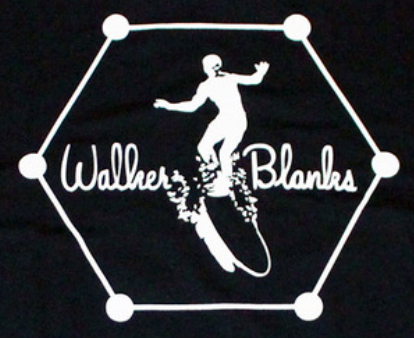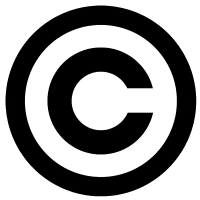International Surfboard Builders Hall Of Fame Inductee Details
Sadly, over the years websites that have links here will change or be abandoned from the time that they were posted here so the will not be found.
| Inductee Name Harold Walker | Event Year 2018 | Inductee Location | Inductee Contact |
| Inductee Brand | 
|
||
| Inductee Boardshop |
Boardshop Link |
| Inductee Bio
Tide Turns for Foam Factory
The demise of the No. 1 surfboard blank maker has shifted demand to Harold Walker 's firm, which had struggled for decades to stay afloat.
December 31, 2005|Leslie Earnest | Times Staff Writer
Email
Share
When Gordon "Grubby " Clark said this month that he was going out of business, fear rippled through the surf industry.
In a blink, the main source of surfboard blanks -- the polyurethane foam cores that big producers and individual artisans alike shape into finished boards -- had disappeared.
And Harold Walker, at 73, had finally gotten lucky. The telephones at his Wilmington company, Walker Foam Inc., went crazy as surfboard makers scrambled to replenish their supplies. "I could sell thousands of blanks right now if we had them, " said Walker, who left the business in 1973, unable to compete with Clark, but resurfaced in 1990 to give it another try. "It 's surreal. " Hank Byzak, who recalls how his fellow surfboard makers shunned Walker 's products while Clark dominated the industry, has another way of describing the turn of events. "I think it 's poetic justice, " said Byzak, a customer of Walker 's who owns Pure Fun Longboards in Encinitas, Calif. Clark 's Dec. 5 announcement upended a normally laid-back, Southern California-born industry of foam blank distributors, surfboard manufacturers, backyard shapers and surf shops. Surfboard makers scrambled for blanks. Retailers raised prices, some adding $100 or more to boards typically priced from $350 to $900 -- or limited the number they would sell. And surfers -- totaling perhaps 2 million worldwide -- wondered where their next boards would come from. Even as Clark 's closing roiled the industry, it has presented an opportunity -- and caused more than a few headaches , for Walker Foam. The company has added a second shift and doubled its workforce to about 20, including hiring "a bunch of Clark guys, " Walker said. "We 've gone from not having enough orders to successfully operate the business to having the lion 's share of the market, " plant manager Gary Linden said shortly after the announcement by the 72-year-old Clark. But the new business has come with a price. With surfboard makers desperate for blanks, Walker Foam can 't come close to meeting demand, Linden said Thursday, the stress evident in his voice. At peak production, Clark Foam was making about 1,000 blanks a day, about 60% of global production, according to the Surf Industry Manufacturers Assn. in San Clemente. That 's 10 times what Walker Foam can produce, Linden said. "I 've just got this stack of orders I can 't fill, " he said. "It 's just an overwhelming thing. " Clark 's decision has unleashed a riptide of change in an industry that has long resisted it. In a letter announcing his company 's shutdown, Clark said, among other things, that county and state environmental regulators had targeted him for closure, an assertion that officials denied. (Nearly a month later, he and workers at his shuttered Laguna Niguel factory continue to decline requests for comment.) The loss of a supplier with such market dominance has been particularly painful for small surfboard makers. "I personally know several guys who couldn 't buy Christmas for the kids this year and they 're having a hard time paying the rent, " said Thomas "T.K. " Brimer, owner of Frog House, a board shop in Newport Beach. Although some in the industry predict that supply could be back to normal in two or three months, others remain doubtful. In some ways the industry is in upheaval as it was in the 1950s, when the popularity of surfing swelled and balsa wood, which was then used to make surfboards, became scarce. That was when board makers started "fiddling around with foam, " Walker said. Among them were renowned shaper and surf shop owner Hobart "Hobie " Alter and Clark, who worked for him. Walker began fiddling too, mixing chemicals in a 3-gallon cardboard ice cream container. After his first experiment, he said, he was "hooked. " "It was maybe 10 seconds -- poof! " Walker recalled. "I had foam all over the place. " Clark initially made blanks only for Alter while Walker started making them for others. Hap Jacobs, 75, a widely known shaper, remembers Walker peddling blanks that were "strapped all over his little car. " His business took off, Walker said, recalling the day his office manager appeared with "eyes as big as saucers and said, 'Harold, we 've got $120,000 in our checking account. ' " Soon, though, Clark sprinted ahead of Walker, making his own chemicals, building his own equipment and keeping prices so low that others could not compete, industry insiders say. | |||
| For the complete biography, go to: | |||

Thanks to: Harold Walker for the photo | |||
Links Harold Walker talks about his Bob Simmons Surfboard - YouTube |



